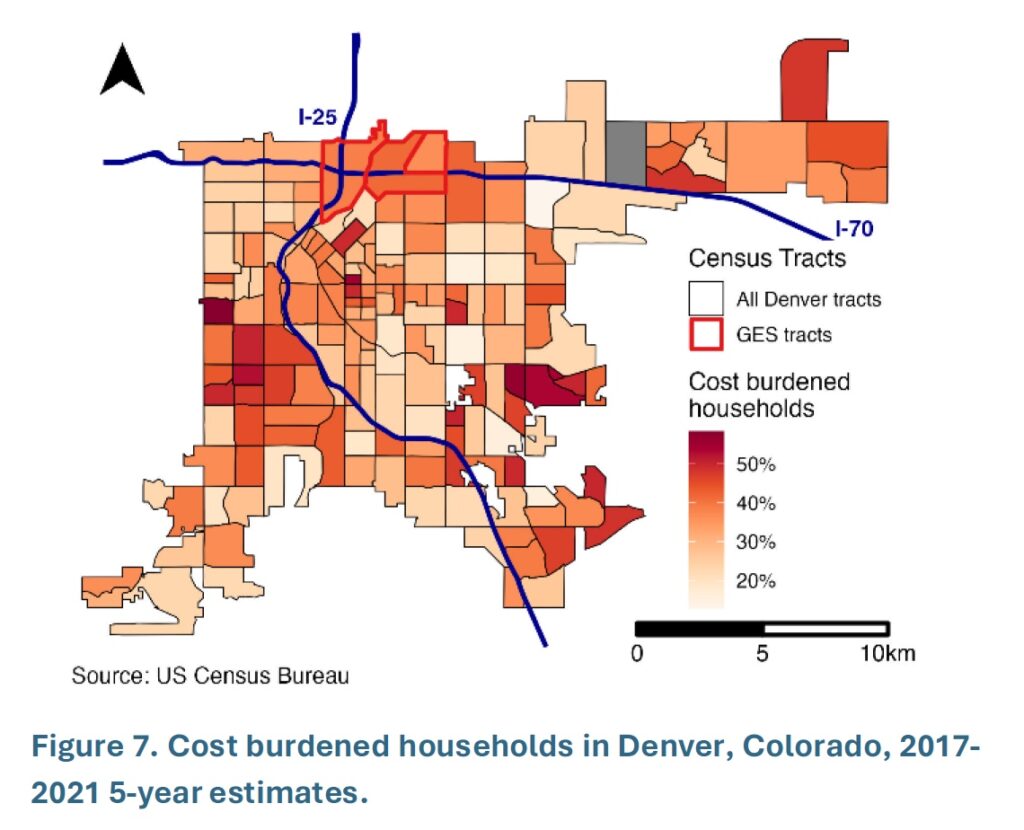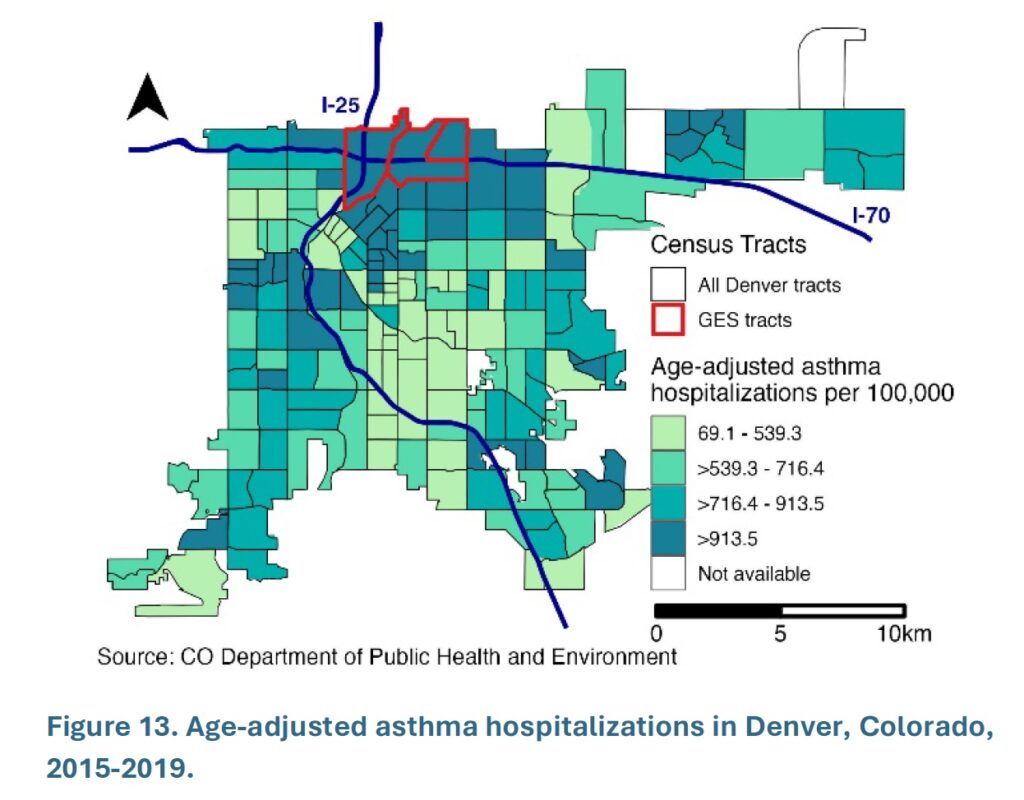By Kathryn White
When nearly 45 residents of Globeville, Elyria and Swansea gathered by Zoom and in-person at CSU Spur Jan. 23, a summary of health data about their lives delivered by researchers didn’t surprise them much.
On many measures, the data simply attached numbers to what community members felt they already knew about the health impacts of living in the highly industrial area of the city.
“The ABC’s of GES: The State of Health And Environment,” released Jan. 31, was the latest report produced by the GES Community Health Study, a multi-year look at health issues in Globeville, Elyria and Swansea.
The report drew on prior research and data samples to compare the health of Globeville, Elyria and Swansea (G.E.S.) residents to the rest of Denver. It looked at social determinants of health — conditions in social, political and environmental surroundings that impact community health and quality of life — as well as specific health indicators like chronic respiratory diseases and cancer prevalence, and environmental factors like air quality, food access and noise.

For example, when it came to housing as a social determinant of health, the report looked at the percentage of G.E.S. households that were “cost-burdened,” a term used to describe households where greater than 30% of income is being spent on housing. According to 2017-2021 U.S. Census Bureau data for Denver, 38.7% of G.E.S. housing units were cost-burdened, compared to 34.4% in Denver.

In the realm of specific health indicators, the report covered chronic respiratory and cardiovascular diseases, among others. It referred to Colorado Department of Public Health and Environment (CDPHE) data showing that from 2015-2019 the asthma hospitalization rate was 1,008 per 100,000 people in Globeville and 1,141 per 100,000 people in Elyria-Swansea, compared to 725 per 100,000 people in Denver.
The report also emphasized the relationship between health insurance coverage and other aspects of health care usage like the availability of different types of health care services. It cited data that in 2021, an estimated 28.3% of adults in Globeville and 33.6% of adults in Elyria-Swansea did not have health insurance coverage, compared to an estimated 12.4% of Denver adults.
Data suggesting that deaths from cancer were not higher than Denver’s overall cancer mortality rate surprised steering committee member Aracely Navarro.
Navarro and others asked about specific types of cancers, expressing disbelief. The data didn’t align with what they understood about their families and neighborhoods.
Researcher Marshall Thomas noted that there simply wasn’t enough data to understand the full scope of cancer or the prevalence of specific types of cancers among G.E.S. residents. And the report itself stated, “In short, there are simply not enough cases of death from cancer to draw conclusions. It is also difficult to make conclusions about the cause of cancer due to the complex, multifactorial pathways between exposure and disease.”
Rebecca Trujillo, Globeville resident and member of the study’s six-person community council, said that she respects the project and believes it will provide tools for her and others to be a voice for their own communities.
The GES Health Study began in 2022 and will conclude in 2025. It is funded through a settlement obtained from the Colorado Department of Transportation through a 2017 lawsuit in which the Elyria Swansea Neighborhood Association, Colorado Latino Forum and the Colorado chapter of the Sierra Club sought to halt the expansion of I-70.
The study is prohibited from making policy recommendations, however it itemized and provided a progress report on 36 recommendations from a 2014 health impact assessment, “How Neighborhood Planning Affects Health in Globeville and Elyria Swansea,” published by Denver’s Department of Public Health and Environment.
The Jan. 31 “ABC’s of GES” report will be translated into Spanish by early March. A public comment period of one week, using an online form at geshealthstudy.org, will follow. The report is available online now in English.
The next community meeting between researchers and residents will take place Tuesday, March 19, from 5:30-7:30 p.m. at CSU Spur and on Zoom.
For questions about pollution and other environmental issues in the area, or about the study, the community is invited to attend drop-in hours with Rocio Monroy-Tello, a public health researcher on the project, and members of the study’s community council. These will take place from 5:30-7 p.m. on Tuesdays Feb. 27, March 12 and March 26 in the Pueblo Chile conference room, CSU Spur, Terra building (4777 National Western Dr.).
The final phase of the study — beginning in late 2024 and continuing into 2025 — will look at the root environmental causes of health concerns and outcomes in G.E.S., as well as at the impacts of multiple and cumulative exposures to environmental pollutants.
To sign up to receive meeting health study notifications or to learn more about the project, visit the GES Community Health Study online.
Read the G.E.S. Gazette’s October 2022 and March 2023 coverage.

Be the first to comment